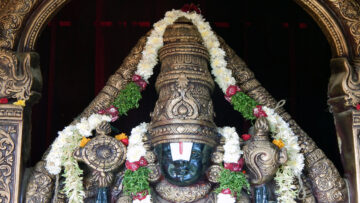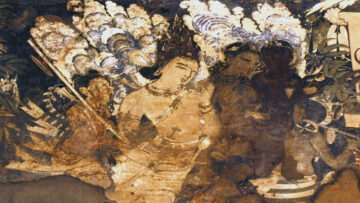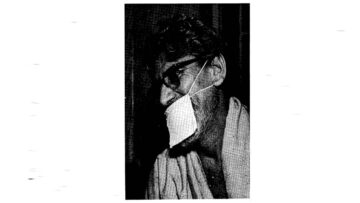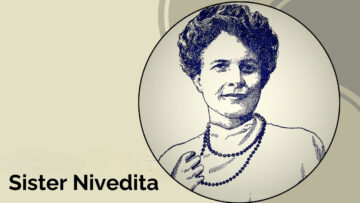Introduction
It is difficult to theorize about the genesis of the intellectual batch of self-loathing anti-culturists that works to produce justification for their devastation towards the Hindu dharmic entity. Balancing enmity and ‘do good-ery’ in a deliberate attempt to cover the sun with their fingertip. Now, there may be human reasons like greed, hate, and hunger for power but majorly it seems to come out of a basic similar chain of thought. Which appears to be an embedded chip of perception, apparently the device is used to annihilate the culture of this nation.
Along with wahhabisation or salafi, that pushed a section of people further into Islamization (i.e. Arab cultural domination in language, dressing, emphasizing monotheism etc.) Macaulayism propelled another portion into further modern, European or Christian space, distancing more people from the Indian cultural identity.
Macaulayism was initiated by and named after Thomas Babington Macaulay in the year 1835 as an educational policy designed to create “a class of persons, Indian in blood and colour, but English in taste, in opinions, in morals, and in intellect. To that class we may leave it to refine the vernacular dialects of the country, to enrich those dialects with terms of science borrowed from the Western nomenclature, and to render them by degrees fit vehicles for conveying knowledge to the great mass of the population.” -defined in his very own words in ‘Macaulay’s Minute on Indian Education’.
Macaulayites are its human products. A Hinduphobic batch Hindus.
In spite of the entirety, he is revered as the pioneer of modern education in India.
Let us set out by drawing parallels with other nations to catapult the graveness of the matter in hand. Indian (Native American’s) boarding schools set up in America and Canada has no link to the Macaulayismic system, except showcasing how education was weaponized against a civilization. These boarding schools were first established by Christian missionaries of various denominations. Schools removed indigenous cultural signifiers by: cutting children’s hair, having them wear American-style uniforms, prohibiting them from speaking their native language, and replacing their tribal names with English names (saints’ names under some religious orders) for use at the schools, in the process of assimilation to Christianize them.
“.. instead of exterminating a part of the human race … we had persevered … and at last had imparted our Knowledge of cultivating and the arts, to the Aboriginals of the Country … But it has been conceived to be impracticable to civilize the Indians of North America– This opinion is probably more convenient than just.” Henry Knox, Macaulay’s American counterpart wrote to George Washington, 1789.
Viability till Date
Macaulayism may be a policy instigated in colonial era but is very viable result yielding nevertheless.
By the time the British left India, the literacy rate was only eighteen percent, which was solely the fruit of the Macaulayismic system since the Indian system of education was in ruins and was not added in the calculation. Since the British education system was the only way to be eligible for government job positions and other sectors, government offices were held by the British educated elites, and functioned in a way similar to how it functioned under the British overlords.
V. A. Smith, the well-known historian of ancient India, and a distinguished member of the Indian Civil Service, never concealed his anxiety to prove the beneficence of the British Raj by holding before his readers the picture of anarchy and confusion which, in his view, has been the normal condition in India with rare intervals. [1]
Although it cannot be generalized; as people under the same umbrella had contrasting character as well and this class of educates if represented by a prominent example will be Savarkar. The educated class, regardless of this division, was held with high admiration in the society and had a say on miscellaneous matters. This benefited them in other roles such as politicians, leaders etc.
Jawaharlal Nehru at Cambridge asking permission to transfer to Oxford: “Cambridge is becoming too full of Indians,” he wrote and later not only did he become the first prime minister of those countrymen but also a prime example of an extreme Macaulayite.
It is not the current authors intention to belittle educational achievements, but to highlight how unjust and demeaning was the destruction of indigenous knowledge systems. Quoting Claude Alvares: “Attempts were made to destroy non-western technologies” and “even the idea that other cultures may have had thriving technologies was calculatingly destroyed.” The basic right of a society to pass down its wisdom was snatched by preoccupying young minds with harboring hate and disgust.
M.K. Gandhi, an educatee from University College, London is often thought to have a distorted understanding about the conceptualization of ahimsa or non violence in Indian religious thought. In Wolpert Stanley’s Gandhi’s Passion: The life and legacy of Mahatma Gandhi (2002), Gandhi advised the British people: “I would like you to lay down the arms you have as being useless for saving you or humanity. You will invite Herr Hitler and Signor Mussolini to take what they want of the countries you call your possessions… If these gentlemen choose to occupy your homes, you will vacate them. If they do not give you free passage out, you will allow yourselves, man, woman, and child, to be slaughtered, but you will refuse to owe allegiance to them.”
Universal students’ books like NCERT work as a one way knowledge dumping ground, not encouraging discussions and debates. Official publications like Makhan Lal’s ‘India and The World for Class VI’ and ‘Ancient India for Class XI’ and Meenakshi Jain’s ‘Medieval India: A Textbook for Class XI’ have been discontinued.
The Nehruvian government had been a serial banning authority. Campbell’s Heart of India, Robert Taylor’s The Dark Urge, and Godse’s testimony were banned. President Rajendra Prasad’s speech was barred from distribution. Dr. R.C. Majumdar was jailed for two years over a comment on Nehru. The RSS Organiser was censored and its publishers’ persecuted.
This has kept us away for a really long time from production of works that would support certain arguments, justifications and proofs from surfacing that would undo the damage. A few scholars such as Dharampal, Sitaram Goel, Dr. S.N. Balagangadhar, Prof. S.R. Rao, Prof. B.B. Lal, K.K. Muhammad and Dr. Jacob De Roover had safeguarded us from a total ideological whitewash.
The Macaulayismic system is guilty of the destruction of the indigenous Indian school of thought. Furthermore, it holds responsibility for disrupting craftsmanship and traditional art forms, along with its accomplice the industrial revolution. The cheap and fast production from machines had a head start over traditional intricately slow and comparatively costlier work by craftsmen rendering them impoverished. This pushed more of them off the edge from their heirlooms. To leave the art that had remained between them for centuries and to look for other ways to keep their bellies full. That often led them serving in clerical positions or end up in servantship if not fittingly educated. This loss was another cultural downturn.
Speaking at a national seminar on “Decolonizing English Education” in 2001, Professor Kapil Kapoor of Jawaharlal Nehru University commented that mainstream English language education in India today has tendency to ‘marginalize inherited learning’ and to have uprooted academics from traditional Indian modes of thought, inducing in them ‘a spirit of self-denigration (heenabhavna).’
Author Rajiv Malhotra has bewailed the ‘continuation of the policy on Indian education started by the famous Lord Macaulay over 150 years ago’ for the virtual banishment of classic Indian literature from the country’s higher academic institutions and the emergence of a ‘new breed’ of writers professing a ‘uniquely Indian Eurocentrism.’
Thomas M. Leonard in Encyclopedia of the Developing World: Volume 1, London: Routledge, (2005; page 1119.) wrote that many Indian nationalists have criticized Macaulayism, claiming that it uprooted Indian traditions in sectors such as finance and replaced them with a foreign system which was wholly unsuited to India. In addition, they claim that Macaulayism caused foreign systems of thought to become prioritized over Indian systems of thought.
Extreme Macaulayitism and Soft Macaulayitism
Macaulayitism can manifest in different layers in the population.
Extreme Macaulayites don’t have a native cultural consciousness. The images of themselves that they have created in their head are of a white skin walker and refuse to resemble with anything Indian. The internet likes to ridicule them with epithets like woke or liberals. The terms have different dictionary meanings then what is used in the current context by either side.
Extreme Macaulayites’ words will yet be held in high esteem and respected because no regular person will dare question their credibility, authenticity and information when they heap scorn upon Indian culture.
The regular person present in plenitude is anyone who has ever weighted the embarrassment of not being fluent in English or merely has a sown seed of inferiority complex on inheriting this culture. They are the soft Macaulayites. They feed themselves as deserving subjects of such violence. Supposedly, the first language of these people is Hindi, the priority for second language should be Sanskrit, not English.
The fundamental problem with both these batches is that the norm is the West. The bar to verify if we as a culture are any good, for both hard and soft Macaulayites, is set by European standards.
In the book ‘Decolonizing the Hindu mind’ by Koenraad Elst, Elst claims that “However, once it gets technical, Hindu revivalists have until recently merely followed suit, adding more fervor than substance to the argument developed by more secular compatriots.” (Note: a Hindu revivalist is someone who is a part of Hindu revivalism movement and not the same as a Macaulayite.)
This sentence is used to suggest that not enough work is done to do rigorous research and build arguments about the benefit and values of Indian culture and indigenous Indian knowledge systems. But recently budding writers such as Vikram Sampath, J. Sai Deepak, Anand Ranganathan and Ashwin Sanghi had been bringing forth facts that are strengthening the core of the movement and discarding false narratives.
Extreme Macaulayites in religious sphere tend to have a certain soft spot for Christianity due to its inalienable leverage on the nineteenth century Britain, and its colonial rule of India
Rammohun Roy founded The Brahmo Samâj, in Calcutta in 1828, the first organized attempt of Hindus to come to terms with the twin challenge of Christianity and modernity as brought home to them by the European colonization. Its main ideological thrust was to transform Hinduism in the mould of Christianity. It assumed that Hindu society could only be healed of its social evils by adopting Christian (Protestant) taboos on polytheism and idolatry. [2] He is famously known to abolish sati in a book called ‘Sati: Evangelicals, Baptist Missionaries, and the Changing Colonial Discourse’ by Meenakshi Jain. She explains that it was lionized to show Hindus’ in a negative light and meticulously cites its non-existence.
B.R. Ambedkar who had studied from Columbia University and the London School of Economics has been the most controversial figure, torn between the left and the right wing. On the other hand, casteism has been a disputed matter. Conveniently, his bias could be elaborated without getting into the fuss. He viewed Hinduism to be inherently wrong, ‘an oppressive religion’ and considered conversion to other religions as preferrable to being a Hindu. [3] In 1935 he said that he was born a Hindu but would not die a Hindu. Whereas for Christianity he believes is not enough or capable to end slavery and not a sinister for it. [4] In annihilation of caste, he writes that to achieve a casteless society is through destroying the sanctity of scriptures and denying its authority. [5] He later proved his words of destructive and disgusting ideas into action by burning the sacred Manusmriti. His plan to convert to Sikhism was busted when he discovered that the untouchables’ privileges will not be guaranteed by British government in reserved parliamentary seats. [6]
Although Macaulayites may accept themselves as Indian by residency, their vision of it will forever be marginalized to a project that direly seeks improvement that is for them synonymous to Westernization.
Thenceforth, the burden was lifted off from the white man’s shoulder and is being carried by imperial slaves.
Bibliography
[1] The History and Culture of the Indian People by R.C. Majumdar (11 Volumes):Book1
[2] Decolonizing The Hindu Mind: 1 by Koenraad Elst
[3] Undoing Untouchability: Violence, Democracy, and Discourses of State in
Maharashtra, 1932-1991 by Anupama P. Rao
[4] For the Solution of the Caste Question, Buddha is not enough, Ambedkar is not enough either, Marx is a must. Ranganayakamma
[5] Appropriating Ambedkar by Gopal Guru
[6] Religion in South Asia: Religious Conversion and Revival Movement in South Asia in Medieval and Modern Times by Geoffrey A. Oddie
Feature Image Credit: wikipedia.org
Disclaimer: The opinions expressed in this article belong to the author. Indic Today is neither responsible nor liable for the accuracy, completeness, suitability, or validity of any information in the article.







